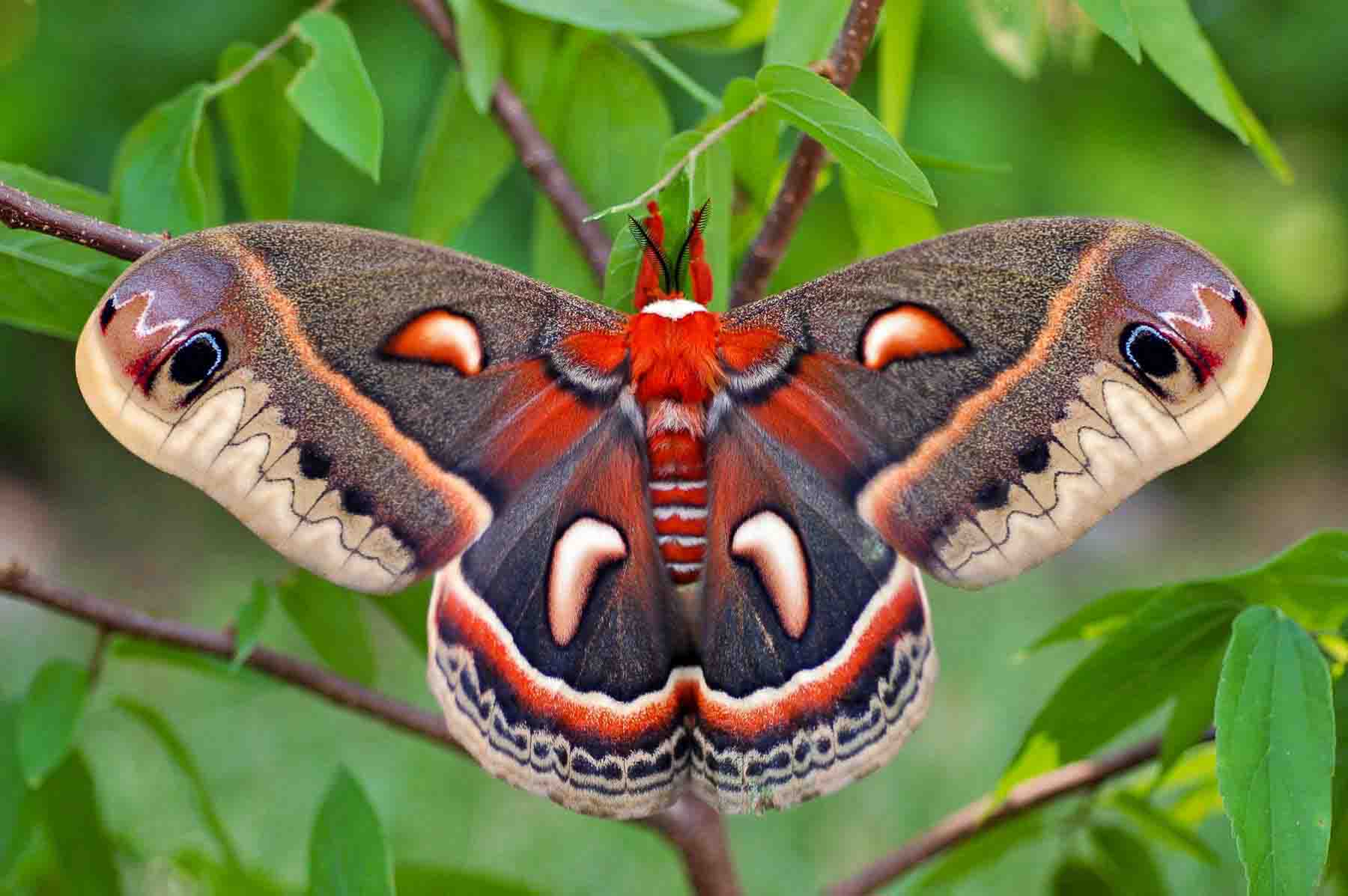Agriculture & Climate Change, UK (Commonwealth Union) – The extinction or reduction of any species from its natural habitat can have devastating effect on its surroundings. A variety of life forms are often interdependent on a single species. Recent research demonstrated the significant role moths can play on its environment.
The study conducted by the University of Sussex, that was published recently found that moths are more effective pollinators at night when compared to the day-flying pollinators like bees.
Taking into consideration the extensive concerns surrounding the lesser wild pollinating insects like bees and butterflies, researchers from the University of Sussex observed that moths play a significant role for pollination in the atmosphere.
Moths are a diverse group of insects, making them one of the most diverse groups of insects in the world. Moths can be found in almost every habitat, from deserts to rainforests, and can range in size from a few millimeters to over 29 centimeters.
Moths are closely related to butterflies, but they are often overlooked and underappreciated. While butterflies are often known for their bright colors and daytime activity, moths are known for their more muted colors and nocturnal behavior. Moths are typically active at night, and many species are attracted to light sources such as porch lights or street lamps.
One of the most distinguishing features of moths is their wings. Moth wings are covered in scales, which give them their characteristic coloration and patterns. The scales are also important for thermoregulation, as they can help moths retain or dissipate heat depending on their environment. Moths also have a unique wing structure that allows them to fly more slowly and maneuver more easily than butterflies.
Scientists explored 10 sites in the South East of England all round July 2021. The researchers discovered that 83 percent of insect visits to bramble flowers were carried out during the day. While the moths conducted lesser visits during the lesser summer nights, notching up just 15 percent of the visits, they had the ability to pollinate the flowers in a speedier manner.
Due to this, the researchers drew the conclusion that moths had increased efficiency pollinators than day-flying insects like bees, that are traditionally considered ‘hard-working’. While day-flying insects have increased amounts of time to transfer pollen, where moths were playing a vital role as the short hours of darkness.
“Bees are undoubtedly important, but our work has shown that moths pollinate flowers at a faster rate than day-flying insects. Sadly, many moths are in serious decline in Britain, affecting not just pollination but also food supplies for many other species ranging from bats to birds. Our work shows that simple steps, such as allowing patches of bramble to flower, can provide important food sources for moths, and we will be rewarded with a crop of blackberries. Everyone’s a winner!” explained Professor Fiona Mathews, who is a Professor of Environmental Biology at the University of Sussex and co-author of this most recent study.
Researchers evaluated the role played by both nocturnal and non-nocturnal insects to the pollination of bramble which is a plant family that raspberries belong to. The researchers tracked the numbers of insects visiting flowers with the utilization of camera traps, figuring out how fast pollen was deposited at various times of day by experimentally blocking insects from visiting certain flowers but not others.
The study indicates that both night-flying and day-flying pollinators have a requirement to be preserved permitting natural ecosystems to flourish. Due to this researchers are further asking the UK public to play an individual role in protecting moths by planting white flowers, growing patches of scrub as well as rough grass, and switching off night lights.








